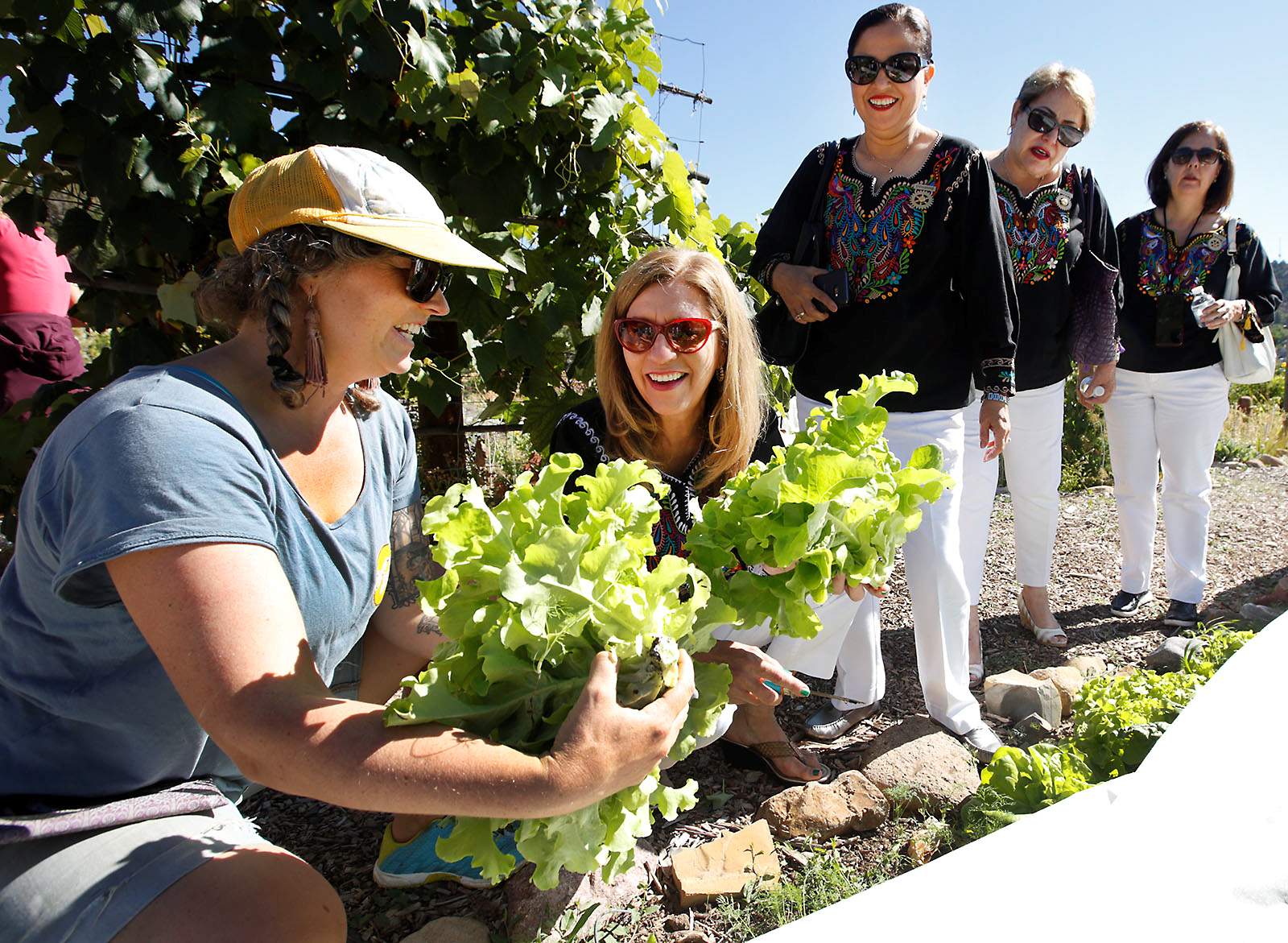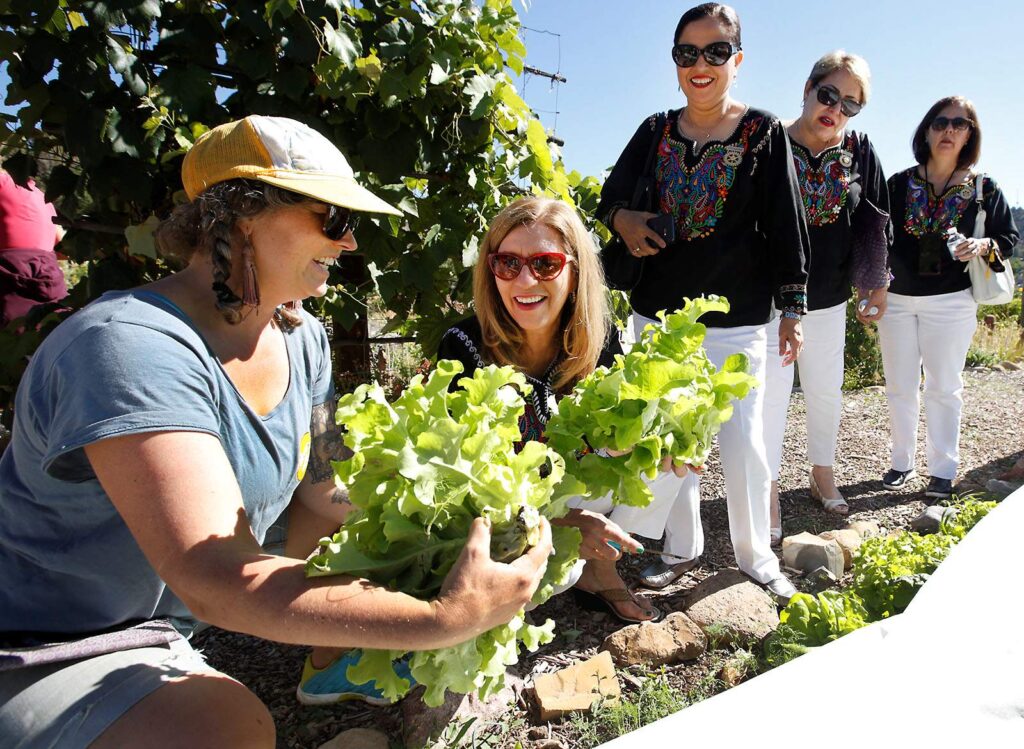Anna Mier found a tour of Manna soup kitchen’s garden and learning kitchen an inspiring example of community building and a model her Rotary group in Juárez, Mexico, might replicate to help some of her hometown’s poorest residents.

Mier and the 24 women in the Juárez Campestre Rotary Club (Mexico, D 4110) know about how to help the underprivileged in Juárez.
The club has built 44 homes for families in the notoriously tough boarder town.
The families had been living in cardboard box structures.
“We are thinking of building a nursery and a garden, maybe a community centre with a kitchen to help the families,” Mier said.
“We want to create something sustainable for the families, produce – something the families can eat.”
The Campestre Rotary Club visited with its sister club, The Durango Daybreak Rotary Club, on Wednesday and Thursday.
The clubs visited nonprofit models that Campestre members might be able to transfer to Juárez to help the families they have already assisted in their escape from the cardboard shantytowns.
Mier said a community centre with a kitchen and garden would be a valuable addition to the 44 homes the club has already built.
“Many people in Juárez are in economically sad situations. This would help children,” Mier said. “They wouldn’t be begging for food.”
She also said a culinary school that could also teach life skills would aid efforts to keep drug cartels from recruiting poor children who live in Juárez.
Besides Manna, the group toured iAm Music to see how a nonprofit teaches music to children.
Already, Juárez has a strong programme, Casa, that provides similar music education.
Camprestre members wanted to see how the Durango nonprofit does it.
On Thursday, the group toured some nonprofits in Ignacio.
“It’s all about learning from each other,” said Martha Trevino, another Campestre member.
“We are trying to keep kids from the streets, drugs and gangs.”
The toughest part to creating something like Manna in Juárez, Trevino said, is financing.
Camprestre will look at Rotary grants and help from the Mexican government.
“But it’s kind of a difficult time right now in Mexico. Also, we will try ourselves to do some fundraising,” Trevino said.
After touring the garden – harvesting lettuce, tomatoes and assorted produce – the Campestre club toured Manna’s learning kitchen, made a garden salad and helped the soup kitchen with its daily chore of baking cookies for lobbies in banks around Durango.
Mary Oswald with Daybreak Rotary said the Durango club has worked with Campestre to identify grants to finance projects in Juárez.
The clubs have been working together for about 14 years.
The Campestre club last visited Durango about five years ago.
Daybreak member Walter Duhaime said the club has sponsored high school students from Durango to assist in service projects in Juárez as recently as 2010, but increased violence along the border has prevented visits since.
Manna is gearing up for its fall 10-week culinary class that teaches culinary skills to help people find employment in Durango restaurants.
The class also aids students with life skills, such as résumé writing and interviewing.
Manna’s culinary class size is eight students, and a couple of spots are still available for the classes that start Sept 10.
Manna Executive Director Ann Morse said tuition for the class is $1,000, but assistance is available.
“If they are committed, we will get a scholarship for them. Money shouldn’t be an issue,” she said.
Besides financing, replicating Manna’s facilities from kitchen to classroom to garden, Camprestre would also have to find ways to deal with Juárez’s arid climate and lack of water, Mier said.
“But all this is very inspiring,” she said of Manna’s operation.
“It inspires us to figure it out.”
Source: The Durango Herald






